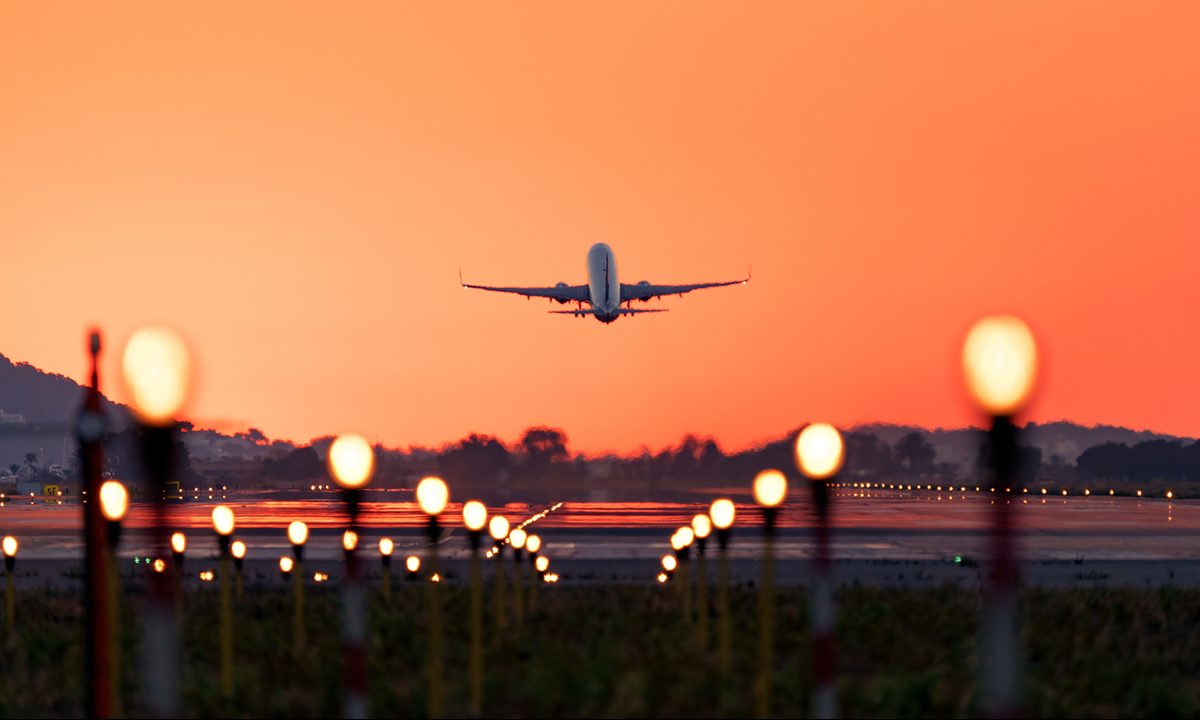

The European Union has long had consumer protections in place that require airlines to compensate passengers with cash payments when their trips are disrupted—sometimes amounting to hundreds of dollars per ticket. Now, President Joe Biden wants to make U.S. airlines follow suit.
Videos by Outdoors
Currently, major U.S. airlines currently guarantee cash payments for travel disruptions, The New York Times reported. While you can certainly ask for compensation or refunds if your flight is delayed due to an equipment failure or a staff strike, remuneration often comes in the form of miles or airline credit, rather than cash. Biden announced this week that he’s seeking to put regulations in place that would force airlines to pay you with cash if your flight is delayed, canceled, or rerouted.
At a White House press conference announcing the president’s proposal, Biden acknowledged the frustration people feel when their flights don’t go as planned, the Times wrote.
“You deserve to be fully compensated,” he said. “Your time matters. The impact on your life matters.”
Biden hasn’t announced specifics yet regarding how much airlines could be forced to pay, or when they would be expected to pay. In the E.U., for example, you aren’t generally entitled to compensation for flight delays or cancellations outside the airline’s control, such as if a major weather event shuts down travel. In the meantime, you can see current commitments from airlines regarding passenger compensation and rebooking at a Department of Transportation dashboard comparing policies from major U.S. airlines.
Looking for ways to make your travel cheaper in the short-term? Here are a few ways to find cheaper flights and stretch your vacation budget a bit further.
1. Use Skiplagged to book separate tickets for flight connections
Sometimes flight prices make no sense—it can often be significantly cheaper to book a round-trip international flight, even if you’re not going to use the return, than to book a one-way ticket. And it can also be cheaper to travel further and connect in an illogical place than to take the most direct route. Skiplagged is a flight search tool that helps you find unconventional routing so you can find cheaper tickets. Just put in your departure and arrival airports, and watch as it crunches destinations and offers you a wide variety of itineraries. As an example, if you want to fly from Raleigh, North Carolina, to London, it may be cheaper to first book a domestic flight from Raleigh to Boston or New York, then a direct flight onward from there. Just beware that this has implications for checking bags. Plus, when you book separate tickets from different airlines, you could get into a tricky situation if you miss a connecting flight due to a travel disruption from the first leg. If you book an unconventional route, it’s best to do so when you’re quite flexible about travel days and times, and it may be wise to have travel insurance just in case.
2. Use Skycanner to search for the cheapest days and destinations
Got a budget and a lot of flexibility? Use Skyscanner’s flight search to put in your departure airport and a time frame, and see which adventurous destinations you can fly to for the least amount of money. Skyscanner’s search features are wonderfully open-ended, so you can explore all airports within a country to see which one is cheapest. If you have the time and flexibility, you may find that it’s cheaper to fly to a different airport and then take a train, public transit, or domestic flight to your final destination. European budget airlines in particular can be incredibly cheap, sometimes less than $15 each way if you can travel without baggage.

3. Sign up for flight deals newsletters like Going and Dollar Flight Club
Going (formerly known as Scott’s Cheap Flights) and Dollar Flight Club are newsletters that search for mistake fares and uncharacteristically cheap flights. Going says its members have recently scored deals like flights from Boston to Reykjavik, Iceland, for $100, and San Francisco to Tokyo for $525.
4. Wait till the last minute if you need to cancel or change a non-refundable flight
If you need to cancel or change a flight that isn’t flexible, pause—and don’t do anything until you absolutely have to. Of course, it’s always worth it to call the airline and ask them if there’s any way to change the flight due to a change in your plans, but if they say no and you’ll lose the amount of the booking anyway, it won’t benefit you to cancel the flight sooner rather than later. This is because airlines are required to refund you for a ticket if they make a change in the travel schedule or if they cancel the flight, so the longer you wait to make a move on your end, the higher your chances are that the airline will have a change on their end that will require them to refund the flight.
5. Ask for compensation
If you’re traveling on a flight departing from or arriving in Europe, the airline will have to follow E.U. regulations for flight compensation even if it’s an American company. So, know your rights and follow up with the airline to seek compensation for cancellations and delays. If you don’t want to contact the airline directly, there are quite a few services that will handle the requests for you in exchange for a fee, such as AirHelp. In the U.S., you can also contact the airline to complain about delays or cancellations, and while they may not give you cash, they might give you a flight voucher or some extra loyalty miles for your troubles.









